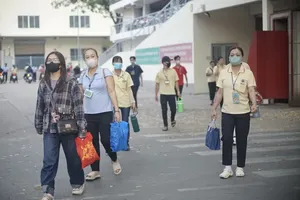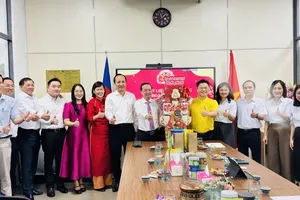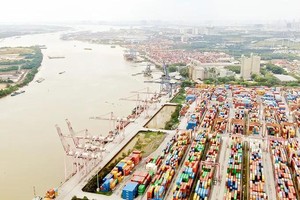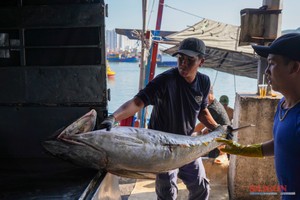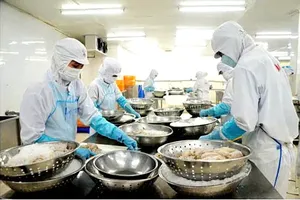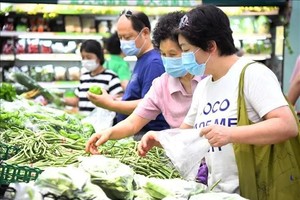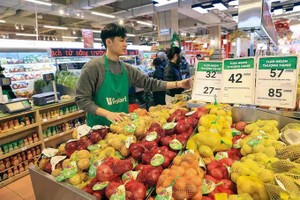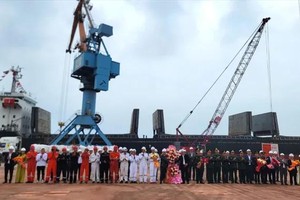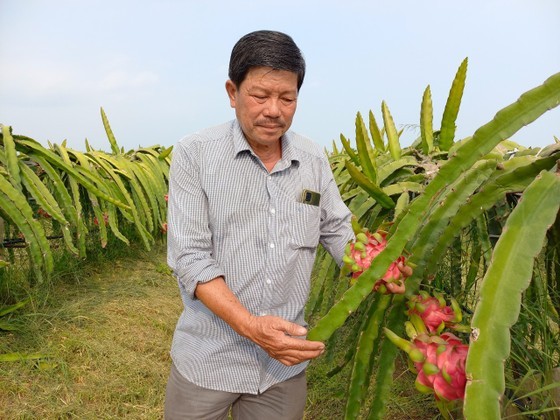 Government strengthens support for farmers in Mekong Delta to use machines in fruit production
Government strengthens support for farmers in Mekong Delta to use machines in fruit production
Today, the Ministry of Agriculture and Rural Development coordinated with the People's Committee of Tien Giang Province in the Mekong Delta to organize a workshop on ‘Mechanization in fruit production’ to remove difficulties and obstacles, share experiences in promoting fruit production, towards efficient and sustainable agriculture.
Fruit and vegetable harvest mechanization has several potential advantages such as reducing harvest costs, eliminating problems associated with finding good quality harvest labor, permitting longer harvesting days, and reducing exposure of harvest to human bacteria.
Speaking at the workshop, Dr. Vo Huu Thoai, deputy director of the Southern Fruit Tree Institute, said that a number of technological and technical solutions should be integrated into the mechanization of fruit production including quality seedlings, planning, and design of specialized gardens, on scientific intensive farming techniques in fruit production.
Dr. Vo Huu Thoai suggested that in order to apply synchronous and effective technology in fruit production in the Mekong Delta, it is necessary to plan a concentrated fruit-growing area for the development of a specialized farming area convenient for mechanization, select, maintain and operate equipment and machinery suitable to the size of each fruit orchard and intensive farming according to VietGAP or GlobalGAP criteria…
At the conference of scientists, the delegates also had many discussions around the application of mechanization in fruit production, such as orientation, mechanism, and policy for mechanized development in addition to the application of mechanization to reduce losses in fruit production and harvesting.
Mr. Le Duc Thinh, Director of the Department of Economic Cooperation and Rural Development (MARD), said that currently the Government and the Ministry of Agriculture and Rural Development have many appropriate policies and guidelines such as the Development Program for research and production of seeds to serve the restructuring of the agricultural sector in the period of 2021 – 2030 as well as a decree on mechanization and synchronous mechanization in agriculture. Amongst policies, many of them aim to create a legal corridor to promote the development of mechanization and synchronous mechanization in agricultural production and fruit production.
According to the Department of Economic Cooperation and Rural Development, in fruit production, the mechanization of the tillage stage reaches over 90 percent, the care stage reaches from 70 percent to 80 percent, and the processing and preservation stage after harvest is only about 20 percent. Current difficulties and challenges in this field are that harvesting, fruit packing, tilling, and fertilizing are still mainly done by hand while mechanization in fruit production and harvesting is still limited and the technical infrastructure has not yet met the requirements for the operation of machinery and equipment. Worse, some stages of fruit production do not have suitable machines to operate efficiently.
In order for the application of mechanization in production to be synchronous, it is necessary to have specific policies to support and create favorable conditions for farmers to access mechanized machines.
According to statistics, in 2021, the whole country had 1.18 million hectares of fruit trees. The output of mango was 940,000 tons while farmers harvested nearly 1.4 million tons of dragon fruit, 992,000 tons of pomelo, 374,000 tons of litchi fruit, 664,000 tons of durian, and over 733,000 tons of pineapple. Particularly in the Mekong Delta region, the area of fruit trees reaches 400,000 ha, and the fruit output hits 4.3 million tons per year.


